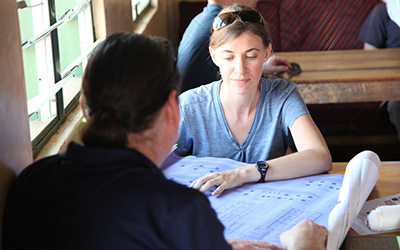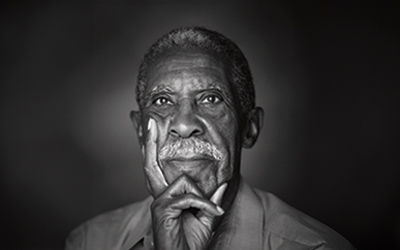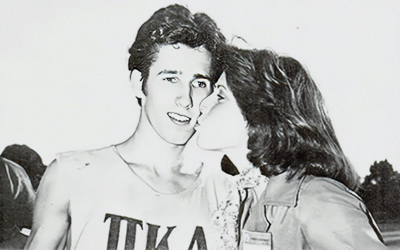When ESPN needs talent in the production room or in front of the camera, it turns to Auburn
By Shelley Wunder-Smith ’96
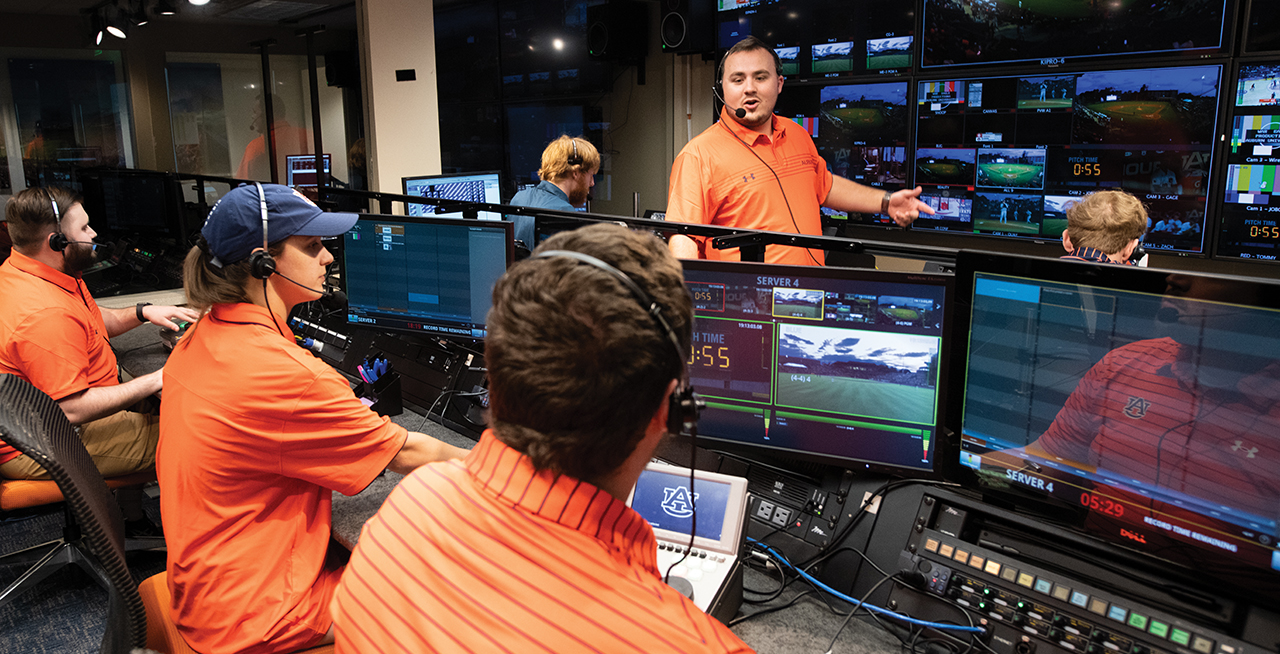
These postgraduate placements are not accidental. Students interested in sports journalism and sports broadcasting careers have ample access to real-world, hands-on training at Auburn—training that prepares them to step directly into professional roles at networks such as ESPN without any ramp-up.
This experiential preparation comes through Eagle Eye, the student-run TV station; WEGL, the student-operated FM-radio station; and especially through War Eagle Productions, which annually produces more than 350 live events for ESPN, the SEC Network and the Auburn Athletics Department.
At Auburn, athletics video services were largely being handled externally through Daktronics, IMG and AUHD. With the high levels of content and production demanded by the SEC Network contract, Auburn saw the opportunity to bring these groups together in-house—and so War Eagle Productions was born.
“Given the volume of events we were covering, we had to get students involved immediately to be successful,” recalled Andy Young, who was brought in as assistant athletic director of video to get the new production unit up and running. Young came from the University of Illinois, where he helped get the Big Ten Network off the ground.
“The success of our program meant having a strong student staff essentially operating as an extension of our full-time staff. We had an amazing initial group of students that were already in place when the SEC Network and War Eagle Productions launched. Auburn had been working with several groups for years to deliver its video needs and several students came over from those groups,” he said.
Michael Sullivan ’14 was one of those students. Throughout college, he worked with Daktronics on the video boards—such as the jumbotron at Jordan-Hare—for football and basketball games. Hoping to make a career out of his interest in video production, Sullivan double-majored in business and radio, television and film.
The arrival of the SEC Network was perfectly timed.
Sullivan, now an ESPN managing director in Charlotte, N.C., explained, “Andy hired me first as a student, and then after I graduated he kept me on as director of live operations to provide oversight for all our SEC Network broadcasts. We were a tag team—he dealt with the postproduction stuff, I managed most of the live events, and together we helped build the organization.”
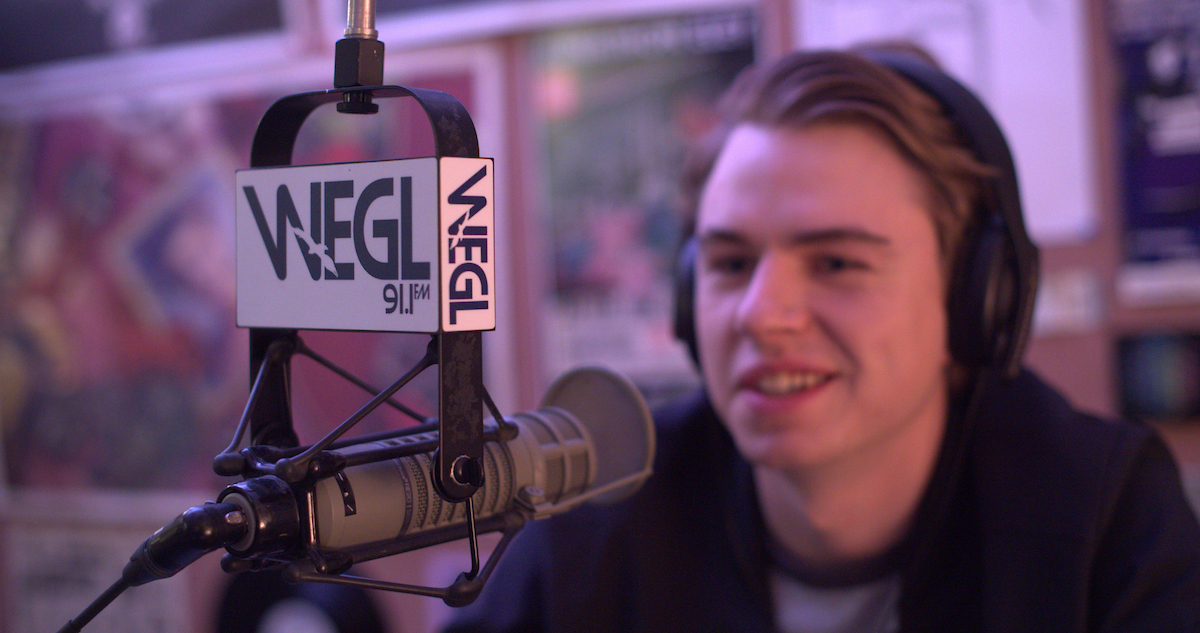
“When the SEC Network started, one of the goals for both the schools and ESPN was training students to be future production personnel. War Eagle Productions is a teaching lab,” said Parker Leppien, director of live operations and programming. “The best way for the students to learn is to get in there and get exposure to all the different components to making a show. It’s to get in there on the machines and learn them. It’s a safe place to make mistakes.”
Trust between ESPN and War Eagle Productions quickly grew as the network realized Auburn could be relied on for excellent broadcasts. Young noted in 2017 that ESPN rarely sent its own production trucks to Auburn events because they knew Auburn would “produce these events at such a high level.”
“The best way for the students to learn is to get in there and get exposure to all the different components to making a show…”
Like many of her fellow students, Delaney Baro ’21 worked at Eagle Eye TV and War Eagle Productions in multiple roles. At the latter, she served as associate director, replay operator, stage manager and grip/utility.
“Going into college, I knew I wanted to work in sports and tell those stories, and that’s how I ended up in sports broadcasting,” Baro said. “At Auburn, there was the opportunity for production behind the scenes, as well as on camera, and I could do a little bit of everything. When I was graduating and applying for jobs at ESPN, there were a lot of connections there through War Eagle Productions, which was great, and they also really liked my experience.”
ESPN hired Baro as a production assistant to work on SportsCenter and the ACC Network. She eventually moved to live events, producing content for NCAA lacrosse games. This summer, Baro began working on Premier Lacrosse League events.

Jovan Cutler ’20
ESPN Radio Production Assistant
Cutler liked that WEGL encourages students to create radio shows that correspond with their interests. Together with a friend, Cutler developed The End Zone, a weekly talk show focused on sports happenings at Auburn and nationally. He also provided play-by-play and color analysis for Auburn’s softball, soccer and volleyball games.
After graduating, Cutler stayed in Auburn as a full-time DJ and board operator at Tiger Communications. He joined ESPN Radio as a production assistant in April 2022. One of his responsibilities as a PA is compiling game highlights for use in ESPN radio shows.
“It’s cool to hear your highlight being played on air because it’s a national highlight,” Cutler said. “It’s not something only people in New York or Connecticut are hearing—the whole country is going to hear this highlight I’ve cut. So it’s gratifying that while I’m doing something I love, I’m also creating content for everyone to enjoy.”
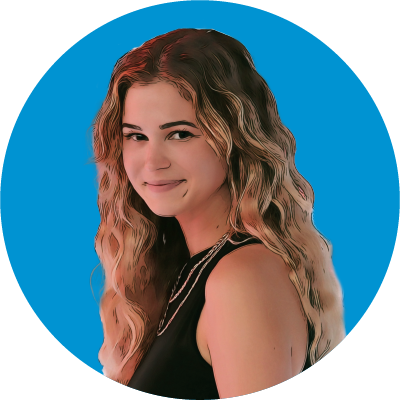
Ashley Ward ’16
ESPN Director
Previously, ESPN’s youngest director had been 27, and when Ward arrived at the network after graduation, she made no secret of her ambition to beat that record.
“Once I’d been there a few months, I went to my manager and told him I wanted to be the youngest, and then I also told every other manager in my department I had that goal,” Ward said. “They laughed a little—not in a mean way—and said it wouldn’t be easy to accomplish in that timeframe, but they would help me try to get there.”
Ward was undeterred. As an Auburn student, she had worked hard preparing for her professional career, spending nearly three years as a photographer for the SEC, managing video boards with War Eagle Productions and interning with ESPN.
After being hired full time, Ward spent four years climbing the ranks as an associate director for a mix of the network’s live events and studio shows. She enjoys “the adrenaline rush of having to get live shows right the first time” as she works on college football, softball and basketball games and studio shows like SportsCenter and Daily Wager.
Ward’s efforts haven’t just paid off in terms of her record-breaking promotion to director. She is also an Emmy award-winner (in 2021, for contributions on SportsCenter) and part of Forbes’ 2023 30 Under 30 (Sports)—just to name a few of this Auburn alumna’s major accomplishments.
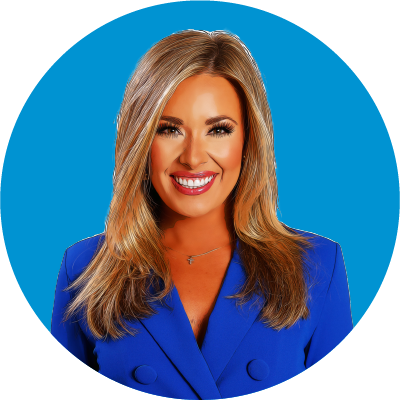
Taylor Davis ’14
ESPN Sideline Reporter
That’s Taylor Davis reflecting on how her career as a reporter for ESPN came to be.
On-camera opportunities are few and far between. In June 2014, when she was about to graduate from Auburn, Davis was offered an on-camera role for a local TV station. ESPN had also made her a job offer, but she would be working behind the camera as a production assistant.
Thinking about what she could learn as a PA—and as an act of faith—Davis took the ESPN job.
“I spent four years in that role learning from our producers, directors and writers. And learning the business side from the worldwide leader in sports,” she said. “It was a priceless experience, and it has made me a much more versatile reporter.”
Davis was gradually given chances to be in front of the camera—“unofficial auditions,” she said—that included the College World Series. By 2018, she had made the transition to an on-camera reporter. These days, you can see Davis in her dream job: on the sidelines of college gymnastics meets, XFL games and college football games—including her beloved Auburn Tigers.
“Taking the initiative and going for it—the worst thing someone can say is no. I learned that at Auburn, and that has shown up over and over in my career,” Davis concluded.
Héctor Rios-Morales ’19
former ESPN Sports Content Researcher
“I did a little bit of everything there,” he said. “PR, updating record books and media guides, going to sporting events, whatever the sports information directors needed. And that opened the doors for me to work for the SEC at the 2017 SEC Football Championship in Atlanta and then the SEC Basketball Championship in Nashville—very cool opportunities.”
Rios-Morales credits these experiences with enabling him to get an internship at ESPN headquarters in the Stats and Information Department, where he helped cover the 2018 FIFA World Cup. The network eventually hired him as a bilingual sports content researcher, a role he held for nearly three years.
“ESPN has a tool to help you get information for everything,” Rios-Morales explained. “There are huge spreadsheets and databases that we used to find facts and figures about games and players. The hardest part is not knowing what will happen during a live game and needing to react in the moment—you always have to stay on your toes during a sporting event.”
Rios-Morales is now a technical producer at a local TV station in Huntsville, Ala. But what he would really like to do is return to Auburn and work at the university, possibly in the athletic department.
“I’m keeping my eyes out for an opening there,” he said.
Stephone Sheffield ’19
ESPN Media Op
He admits he thought he would get the job offer the first time, but the network decided to go with someone who had more experience.
As a sports journalism major at Auburn, Sheffield was a regular sports analyst for Eagle Eye TV and put in long hours at War Eagle Productions. After his first round of ESPN interviews, he went back to War Eagle Productions and put in more long hours. When the pandemic shut everything down, he worked for a while at an Amazon warehouse. He returned to War Eagle Productions for the SEC 2020 football season opener: Auburn versus Kentucky at home.
In 2021—two years after that first interview series—Sheffield found himself in front of the same group of people at ESPN. They asked him how he handled the initial rejection.
“I put myself in the position where I’m the most qualified person you’re going to find at this point,” he told them. “If you don’t hire me, you won’t be hiring the most qualified person.”
ESPN hired him.
Sheffield soon realized how quickly things move at the network. “If I had been hired in 2019, I would have been playing catch-up from day one. So I really wasn’t ready the first time around,” he reflected. He is grateful for the two extra years of experience.
“These classes helped make us even more competitive as a program among the other SEC schools,” said Journalism Professor Emeritus John Carvalho. “And then we realized we could offer a major—the first of its kind in the SEC.”
In 2020, Auburn began offering a sports production major, unique among SEC schools and one of very few majors like it in the U.S. Class enrollment is capped at 20 students, so they receive close oversight from instructors. Topics include live sports producing, sports media management and news and sports announcing, among others.
“The major gives students both the theoretical basics and the terminology they need, as well as the hands-on experience. I really push them to go get relevant jobs on campus, since there are so many opportunities,” said Young, who now is a lecturer in the School of Communication and Journalism. “A lot of our students, by the time they graduate, have had three or four years of working in the field. If they do that, they’re going to be so
much more employable right out of college.”
“The major gives students both the theoretical basics and the terminology they need, as well as the hands-on experience. I really push them to go get relevant jobs on campus, since there are so many opportunities”
Leppien encourages his students not to take this seemingly dependable success for granted.
“I know our group has been given opportunities other schools have not because of the quality of our work,” he said. “And I tell the students all the time, ‘OK, you’ve gotten to this level, and the reputation of this group is what it is because of the people who came before you and what they’ve done professionally,’” he said. “This group is highly regarded because of that, and it’s our responsibility to uphold and continue that reputation for the people who will come behind you.”
Where students elsewhere might reasonably consider their work in school as a kind of professional preproduction, Auburn’s history of student-oriented, hands-on, can-do broadcasting has meant that journalism majors are doing the real work now. As they step directly into careers at ESPN, all they need is a bit of professional polish. Which is to say: they clean it up in post.
Building Hope: Disaster Relief Architecture & Design
Combining faith and design, disaster response architect Sarah Elizabeth Dunn ’03 builds shelters for disaster-stricken communities around the world.
Harold Franklin Reflects on Integration 50 Years Later
Fifty years ago, unsure of his safety, a tall, soft-spoken Black man walked alone across the Auburn campus to register for classes.
Auburn Love Stories: How They Met
From blind dates to football games to chance meetings in the classroom, Auburn alums reflect on how they found love and everlasting romance on the Plains.
Building Hope: Disaster Relief Architecture & Design
Combining faith and design, disaster response architect Sarah Elizabeth Dunn ’03 builds shelters for disaster-stricken communities around the world.
Harold Franklin Reflects on Integration 50 Years Later
Fifty years ago, unsure of his safety, a tall, soft-spoken Black man walked alone across the Auburn campus to register for classes.
Auburn Love Stories: How They Met
From blind dates to football games to chance meetings in the classroom, Auburn alums reflect on how they found love and everlasting romance on the Plains.
